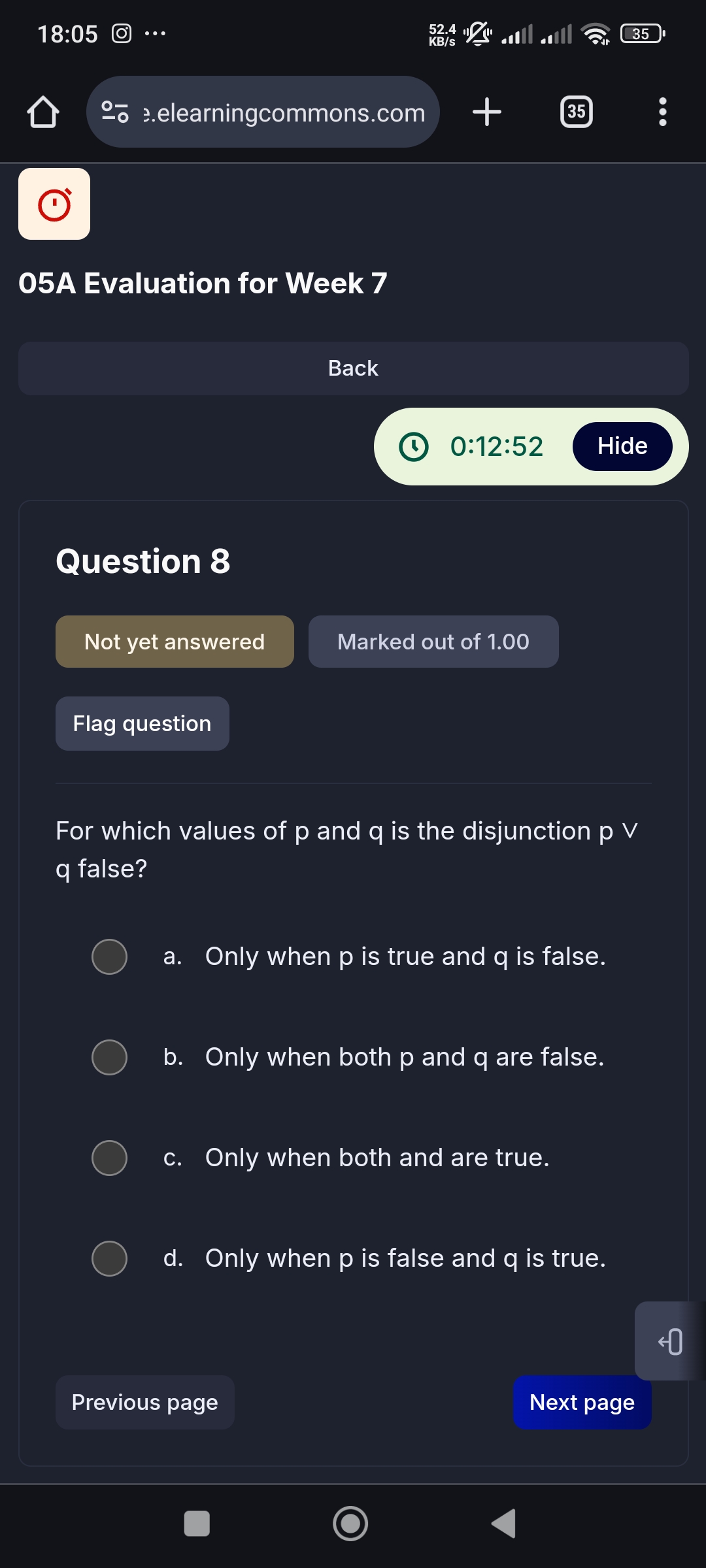For which values of p and q is the disjunction p V q false?

Understand the Problem
The question is asking for the conditions under which the disjunction (logical OR) of two values, p and q, results in false. It aims to test understanding of logical operations in propositional logic.
Answer
The disjunction $p \lor q$ is false only when both $p$ and $q$ are false.
Answer for screen readers
The disjunction $p \lor q$ is false only when both $p$ and $q$ are false.
Steps to Solve
-
Understanding Disjunction The logical disjunction (OR) of two statements $p$ and $q$, represented as $p \lor q$, is true if at least one of the statements is true. It is false only if both statements are false.
-
Identifying Values To determine when $p \lor q$ is false, we need to analyze the truth values:
- $p = \text{True}, q = \text{True}$ → $p \lor q = \text{True}$
- $p = \text{True}, q = \text{False}$ → $p \lor q = \text{True}$
- $p = \text{False}, q = \text{True}$ → $p \lor q = \text{True}$
- $p = \text{False}, q = \text{False}$ → $p \lor q = \text{False}$
- Conclusion The only scenario in which the disjunction $p \lor q$ is false occurs when both $p$ and $q$ are false.
The disjunction $p \lor q$ is false only when both $p$ and $q$ are false.
More Information
This concept is fundamental in propositional logic, commonly used in various fields such as computer science, mathematics, and philosophy to determine the validity of statements.
Tips
- Confusing the truth table of the disjunction with that of conjunction (AND) where both need to be true for the statement to be true.
- Not recognizing that at least one true statement in disjunction makes the entire statement true.
AI-generated content may contain errors. Please verify critical information